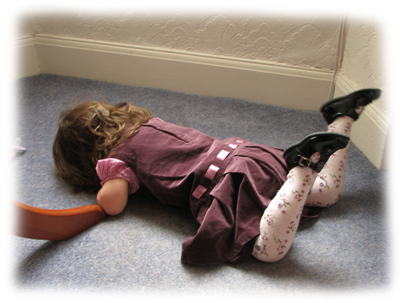
All children have times when their feelings are strong and overwhelming- especially if they a diagnosis of Autism Spectrum Disorder or Attention Deficit Hyperactivity Disorder (as do some of the children who come to see us at Attuned Psychology). When this happens a child may have a temper tantrum, or more extreme behaviours may warrant the term meltdown.
These terms are both informal ways of describing behaviours which show that a child has a problem regulating or managing their emotions. Temper tantrums happen when children get angry but have some control over what they are doing (“I don’t want/ like this”!).
Meltdowns are more severe and parents usually say their child is hysterical or out of control (“They’ve lost it”!) so much so that nothing can be done until they have calmed down. Meltdowns are distressing for parents but also siblings, particularly if they are on the receiving end of anger and sometimes aggressive behaviour.
What are some of the common causes of temper tantrums and meltdowns?
Meltdowns are most often caused by frustration or anger when things don’t go according to plan. This may be because of difficulty understanding what is happening or difficulty communicating about feelings or problems. Children may also have meltdowns which are triggered by strong fears or worries.
Understanding the triggers for your child’s meltdowns
It is often helpful to keep a behaviour diary to identify any triggers that might be exacerbating the problem. The diary may show that your child’s behaviour is worse at different times (during the day or across the week). It may also indicate problems with sensory overload, social problems or general tiredness.
It’s worth remembering that children with neurodevelopmental problems have brains that work in different ways to those who don’t. Learning to regulate emotions will be harder for them to do, and take more time and effort.
Be proactive – take a preventative approach
As general rule, it’s good to be proactive when faced with the problem of meltdowns. We suggest parents and children become anger or worry detectives, searching for the cues that might signal a meltdown may happen soon. This will provide the opportunity for children to talk about what is happening for them before they get overwhelmed, or for parents to step in to modify the environment or change activities if needed.
Negotiate a behavioural contract
It’s very important for parents to communicate their clear expectations of what is appropriate and inappropriate behaviour at home. This can be done in the way of a behavioural contract which outlines both rights and responsibilities, particularly important if aggressive behaviour is directed to others (siblings for example).
A contract may specify that your child’s sibling(s) have a right to stay safe but a responsibility not to tease or trigger frustration in their brother or sister. Similarly, the child who is having meltdowns has the right to feel anger/ frustration but a responsibility to express feelings in a way that isn’t hurting others.
What are some things to do when a meltdown happens?
* The very first thing is to stay calm (though this may be a herculean effort)! It’s important that children who have trouble regulating their emotions have good models of how to do this.
* Next, take immediate action to ensure that everyone is safe. Tell the child who is having a meltdown that they need to go to their safe place to calm down. We suggest that parents help their child to set up a special calm down space in the bedroom or another spot in the house. This may be a beanbag in the corner of a quiet room with a box of carefully selected sensory or comfort toys, books or quiet activities.
* After the meltdown, when everyone is feeling in control of their emotions, talk about what has happened and why.
* If you have one in place, revisit the family contract and remind your child of their responsibility to express feelings in a safe way.
* Also review the things they could have done differently. For kids who have trouble verbalizing a feelings chart can help prompt your discussions.
* It is also important to consider ways of increasing “feeling talk” within the family – get everyone involved in labelling their feelings and linking this to things that have happened, and positive ways in which strong feelings can be handled. “Darn, this isn’t going right- how frustrating! Phew, have to calm down and do things differently”.
If you would like help to understand your child’s behaviour and emotional responses and develop confidence in managing the meltdowns more effectively, contact us today and one of our psychologists at Attuned Psychology will work with you to help find a solution.
Dr Angela Crettenden
Clinical Psychologist
Subscribe to our newsletter Attuned Life
Would you be interested in receiving our occasional newsletter, event information and other useful tips via e-mail?

